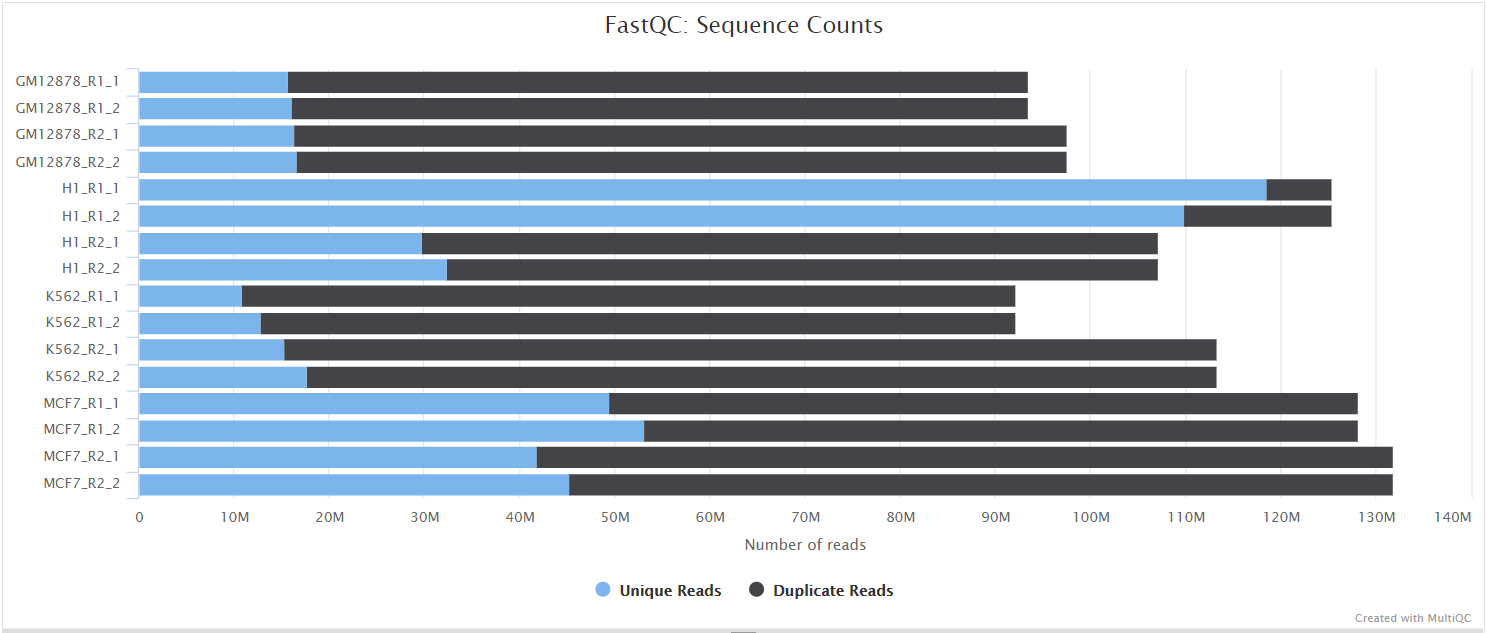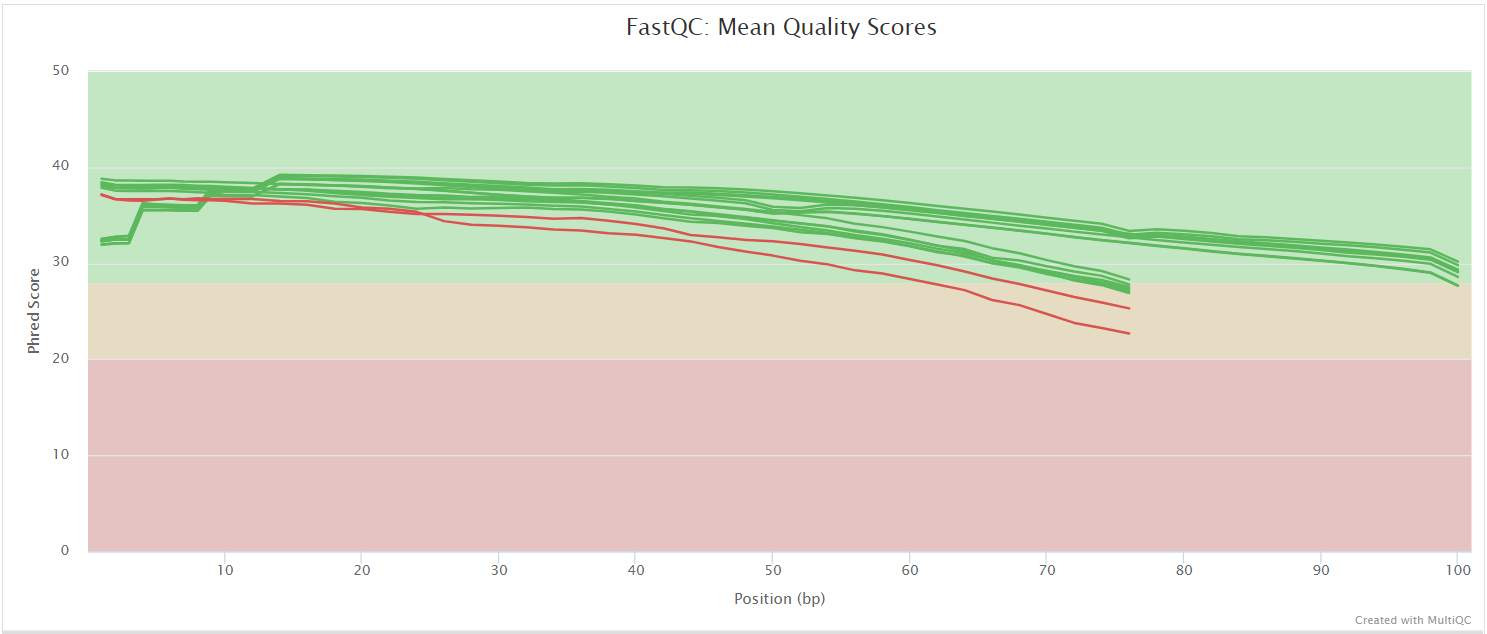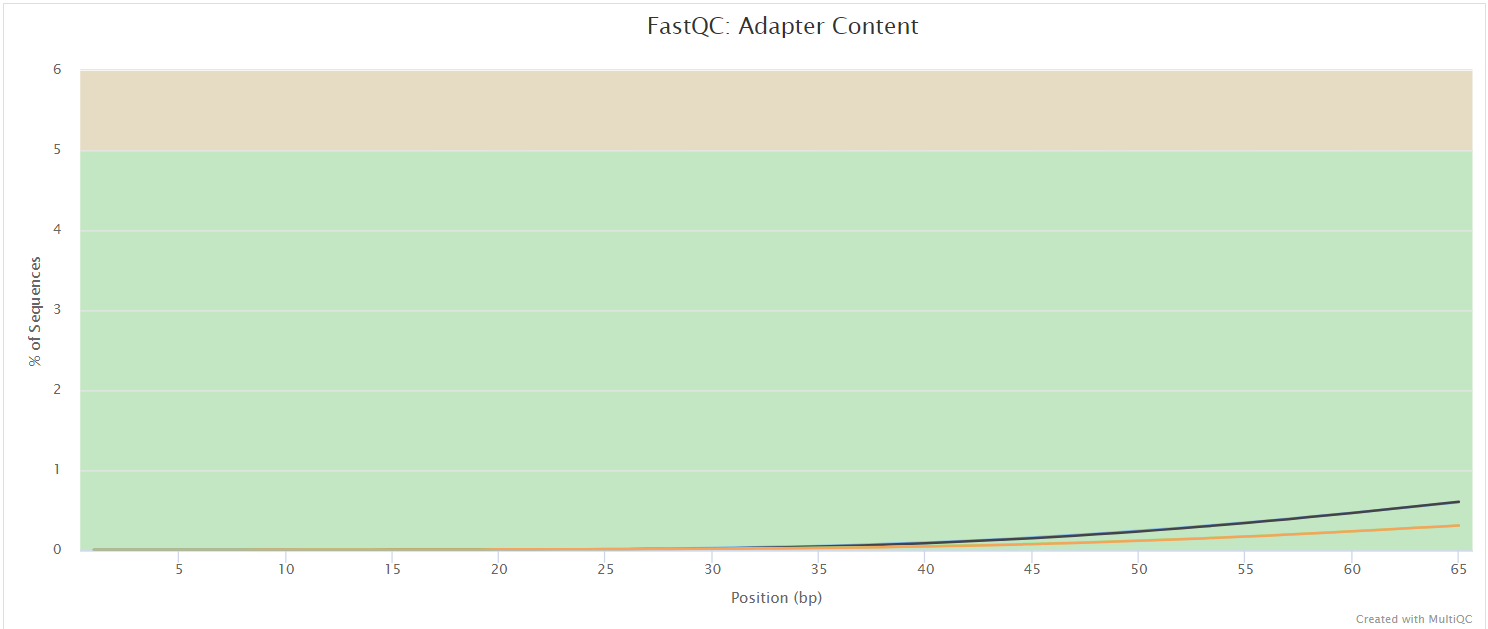7.3 KiB
nf-core/taxprofiler: Output
Introduction
This document describes the output produced by the pipeline. Most of the plots are taken from the MultiQC report, which summarises results at the end of the pipeline.
The directories listed below will be created in the results directory after the pipeline has finished. All paths are relative to the top-level results directory.
Pipeline overview
The pipeline is built using Nextflow and processes data using the following steps:
- FastQC - Raw read QC
- falco - Alternative to FastQC for raw read QC
- fastp - Adapter trimming for Illumina data
- AdapterRemoval - Adapter trimming for Illumina data
- Porechop - Adapter removal for Oxford Nanopore data
- BBDuk - Quality trimming and filtering for Illumina data
- PRINSEQ++ - Quality trimming and filtering for Illunina data
- Filtlong - Quality trimming and filtering for Nanopore data
- Bowtie2 - Host removal for Illumina reads
- minimap2 - Host removal for Nanopore reads
- samtoolsstats - Statistics from host removal
- Kraken2 - Taxonomic classifier using exact k-mer matches
- KrakenUniq - Taxonomic classifier that combines the k-mer-based classification and the number of unique k-mers found in each species
- Bracken -
- Centrifuge - Taxonomic classifier that uses a novel indexing scheme based on the Burrows-Wheeler transform (BWT) and the Ferragina-Manzini (FM) index.
- Kaiju - Taxonomic classifier that finds maximum (in-)exact matches on the protein-level.
- Diamond - Sequence aligner for protein and translated DNA searches.
- mOTUs - Tool for marker gene-based OTU (mOTU) profiling.
- MultiQC - Aggregate report describing results and QC from the whole pipeline
- Pipeline information - Report metrics generated during the workflow execution
FastQC
Output files
fastqc/*_fastqc.html: FastQC report containing quality metrics.*_fastqc.zip: Zip archive containing the FastQC report, tab-delimited data file and plot images.
FastQC gives general quality metrics about your sequenced reads. It provides information about the quality score distribution across your reads, per base sequence content (%A/T/G/C), adapter contamination and overrepresented sequences. For further reading and documentation see the FastQC help pages.
NB: The FastQC plots displayed in the MultiQC report shows untrimmed reads. They may contain adapter sequence and potentially regions with low quality.
fastp
fastp can automatically detect adapter sequences for Illumina data.
Output files
fastp
AdapterRemoval
Output files
adapterremoval
Porechop
Output files
porechop<sample_id>.fastq.gz
BBDuk
Output files
bbduk<sample_id>.bbduk.log<sample_id>.fastq.gz
PRINSEQ++
Output files
prinseq++
Filtlong
Output files
filtlong<sample_id>_filtered.fastq.g<sample_id>_filtered.log
Bowtie2
Output files
bowtie2<sample_id>.bam<sample_id>.bowtie2.log<sample_id>.unmapped.fastq.gz
minimap2
Output files
minimap2<sample_id>.bam
Samtools stats
Output files
samtoolsstats<sample_id>.stats
Kraken2
Output files
kraken2<sample_id>.classified.fastq.gz<sample_id>.unclassified.fastq.gz<sample_id>.report.txt<sample_id>.classifiedreads.txt
KrakenUniq
Output files
-
krakenuniq<sample_id>.classified.fastq.gz<sample_id>.krakenuniq.classified.txt<sample_id>.krakenuniq.report.txt<sample_id>.unclassified.fastq.gz
interleaved?
Centrifuge
Output files
centrifuge<sample_id>.centrifuge.mapped.fastq.gz<sample_id>.centrifuge.report.txt<sample_id>.centrifuge.results.txt<sample_id>.centrifuge.unmapped.fastq.gz
Kaiju
Output files
kaiju<sample_id>.tsv
Diamond
Output files
diamond<sample_id>.log<sample_id>.sam
mOTUs
Output files
motus<sample_id>.log<sample_id>.out
MultiQC
Output files
multiqc/multiqc_report.html: a standalone HTML file that can be viewed in your web browser.multiqc_data/: directory containing parsed statistics from the different tools used in the pipeline.multiqc_plots/: directory containing static images from the report in various formats.
MultiQC is a visualization tool that generates a single HTML report summarising all samples in your project. Most of the pipeline QC results are visualised in the report and further statistics are available in the report data directory.
Results generated by MultiQC collate pipeline QC from supported tools e.g. FastQC. The pipeline has special steps which also allow the software versions to be reported in the MultiQC output for future traceability. For more information about how to use MultiQC reports, see http://multiqc.info.
Pipeline information
Output files
pipeline_info/- Reports generated by Nextflow:
execution_report.html,execution_timeline.html,execution_trace.txtandpipeline_dag.dot/pipeline_dag.svg. - Reports generated by the pipeline:
pipeline_report.html,pipeline_report.txtandsoftware_versions.yml. Thepipeline_report*files will only be present if the--email/--email_on_failparameter's are used when running the pipeline. - Reformatted samplesheet files used as input to the pipeline:
samplesheet.valid.csv.
- Reports generated by Nextflow:
Nextflow provides excellent functionality for generating various reports relevant to the running and execution of the pipeline. This will allow you to troubleshoot errors with the running of the pipeline, and also provide you with other information such as launch commands, run times and resource usage.


